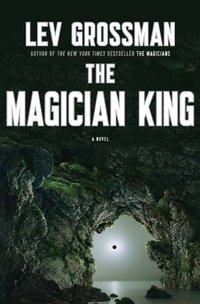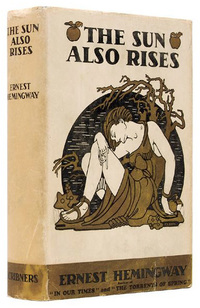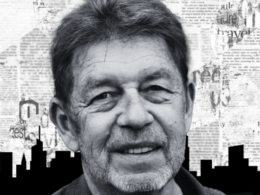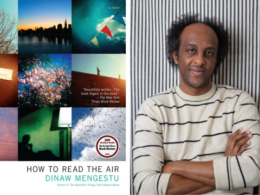
Author of the just-published The Magician King, Lev Grossman joins our continuing series of guest blog posts by writers of fiction, history, essays, and poetry with this appreciation of what Ernest Hemingway accomplished in his first novel—and never quite did as well again.
I’m going to try to do something that is becoming increasingly difficult, which is to praise Ernest Hemingway. Hemingway has already been thoroughly praised, of course, but that’s only part of the difficulty. After he was praised he was encrusted with a layer of bad Hemingway imitations, some of which he wrote himself, and then the whole package was thoroughly tarnished by damning allegations against his politics, his attitudes toward women, and his personality, a good many of which are probably quite true. So you can see the problem.
But if I were to pick a single American author who has influenced me, it would be silly to skip Hemingway, and if I were to pick a single book it would be ridiculous to skip The Sun Also Rises. The discipline of the writing alone is astounding—that’s the kind of thing Hemingway would have said, but it’s absolutely true. Nobody working in English, or at least in American, had seriously attempted to put the lessons of Flaubert into practice before Hemingway. His prose is so unadorned and unshowy it’s practically ego-less—not a thing one usually hears said about Hemingway, but it’s true. He’s absolutely determined to get out of the way of what’s going on, to make the verbal membrane between you and the action so thin you can almost touch it, and he does.
(And yes, I suppose Hemingway’s obsessive un-showiness is its own kind of showiness. But nobody’s going to solve that conundrum. Not you, not me, not Flaubert, definitely not Hemingway.)

This makes The Sun Also Rises sound like some kind of technical exercise. But what I really like about it is that nobody else describes the kinds of moments Hemingway does in that book: the interstitial, throwaway moments that are what life is mostly made of. You could redact all the stuff about bullfighting, and Jake Barnes’s missing penis—which, let’s face it, is all fine as far as it goes but it gets a little ridiculous—and you’d still be left with one of the most overwhelmingly human books ever written. You’d be left with the pretty prostitute who smiles, showing her unexpectedly bad teeth; and the Spanish peasant who takes a little more than his fair share of the wine; and Mike, husband of the faithless Brett, losing at poker dice and having to admit he can’t pay up; and the fat count twirling the bottles of champagne in the bucket of salted ice, and yanking up his shirt to show off his arrow scars; and Jake promising to be there at five in the morning for the start of a bicycle race, then waking up the next morning after the cyclists have already been on the road for three hours. The heart of the book isn’t bullfighting. It’s people doing their human best to have a decent time of it even as the abyss of sadness and death yawns beneath them, preparing to swallow them.
Hemingway’s entire oeuvre is veined and marbled with magnificent stuff like this, but I don’t think he ever wrote another book as good as The Sun Also Rises. He never worked that hard or made himself that vulnerable again. But a book like that, any writer would be proud to retire on. Here’s one final perfect touch: Wilson-Harris, the Englishman whom Barnes meets on a fishing trip in Spain. He’s an extra, a disposable character who won’t reappear in the book. (If it were me I would have had Jake run into him at the hotel at the end, and they’d have a nice closing moment of bromance, but that’s because I’m not as disciplined a writer as Hemingway.) There aren’t many things harder to express in a novel than pure happiness, but Hemingway shows it to us when Wilson-Harris (the other characters get his name wrong) tries to explain what a splendid time he’s had on his fishing holiday. He can’t do it—he keeps trying and then collapsing into inarticulate babbling. “You don’t know what this all means to me,” he keeps repeating. And the funny thing is that in spite of everything, we do know. Hemingway knew we would.
A senior writer and book critic for Time magazine, Lev Grossman lives in Brooklyn with his wife and two daughters. Cory Doctorow marveled that Grossman’s novel The Magicians (2009), the first of a trilogy, “may just be the most subversive, gripping and enchanting fantasy novel I’ve read this century.” Judged a best book of 2009 by The New Yorker, The Magicians became a New York Times bestseller. Its sequel, The Magician King, has just been published; Alexander Chee hailed it on NPR as a “bravura performance” and “a triumphant sequel, surpassing the original.”



